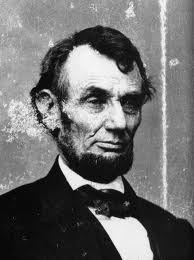Lincoln and Chief Justice Taney: Slavery, Secession and the President's War Powers by James F. Simon
An interesting head-to-head biography about two gentlemen who went head-to-head quite often during the Civil War.
Published in 2006 by Simon and Schuster.
Published in 2006 by Simon and Schuster.
James F. Simon's Lincoln and Chief Justice Taney shines an interesting light on two overlooked aspects of 19th century American history.
The first overlooked aspect is the Supreme Court, specifically the person of Roger Taney (pronounced Tawney), the Chief Justice most famous for what may be known for all time as his single worst legal opinion, and one of the most controversial and ill-considered opinions of all time - Dred Scott.
Simon tells the story of Taney's life, including his surprisingly liberal views on slavery and his legal defense of blacks who were seized illegally to be sold into slavery, the fact that he freed most of his family's slaves and even provided a modest pension for the elderly ones. Taney even defended an the rights of an abolitionist preacher to preach his message in Maryland. However, it seems that those opinions all changed once slavery became THE issue of the 1840s and 1850s. His views seem to have hardened in response to outside pressure on the institution of slavery.
I must admit that I was not well-informed about Taney - for me he was the man who is most famous for the line about African-Americans in which he says that they were "so far inferior that they had no rights which the white man was bound to respect." Of course, it turns out that Taney's political life was much more than just that one line that appears in all of the history books and I did learn a lot about Taney's life and the intricate politics of the era - more than a reader normally gets: Jackson, Calhoun, Webster, Clay and finally Lincoln. Taney bridges all of these figures, was seen as a moderating presence for most of that time and really gets the short-shrift historically due to the abusive excesses of the Dred Scott decision.
Lincoln, on the other hand, is, seemingly, the subject of a new biography every week. What has not been written about Lincoln? In this case, there is nothing new, but the focus on his administration's interactions with the Taney Court is interesting and thought-provoking.
This is a good, small dual biography of two of the towering political figures of their time. Not so much detail that the general history reader is bored, not so little that the serious reader of history is turned off.
I rate this biography 4 stars out of 5.
This book can be found on Amazon.com here: Lincoln and Chief Justice Taney.
Reviewed on May 15, 2011.
The first overlooked aspect is the Supreme Court, specifically the person of Roger Taney (pronounced Tawney), the Chief Justice most famous for what may be known for all time as his single worst legal opinion, and one of the most controversial and ill-considered opinions of all time - Dred Scott.
 |
| Roger Taney (1777-1864) |
 |
| Abraham Lincoln (1809-1865) |
Lincoln, on the other hand, is, seemingly, the subject of a new biography every week. What has not been written about Lincoln? In this case, there is nothing new, but the focus on his administration's interactions with the Taney Court is interesting and thought-provoking.
This is a good, small dual biography of two of the towering political figures of their time. Not so much detail that the general history reader is bored, not so little that the serious reader of history is turned off.
I rate this biography 4 stars out of 5.
This book can be found on Amazon.com here: Lincoln and Chief Justice Taney.
Reviewed on May 15, 2011.











Comments
Post a Comment